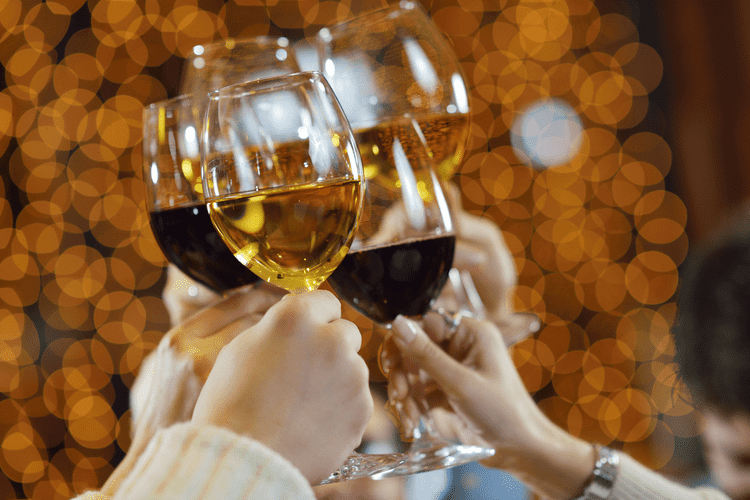Blog
Content
Cleveland Clinic geriatrician Ronan Factora, MD, isn’t surprised. At the same time, this would allow us to define the age with the greatest vulnerability and the best time for the implementation of prevention programs. •During youth, the hippocampus is more sensitive to the noxious effects of alcohol-derived neuroinflammation and oxidative damage. This explains why this pattern of consumption is more damaging to the brain than regular excessive consumption. Carrying a drinking tracker card, making check marks on a calendar, or making notes on a mobile phone or notepad can help people trying to stop binge drinking. Understanding how much alcohol counts as a “standard” drink may also help.
- Also, people’s diet tends to change when drinking alcohol.
- 10 Ways To Help An Alcoholic Family MemberEven though things may seem helpless, they aren’t.
- Tying alcohol or drug cessation to personal health goals influences patients to make changes to live the life they desire.
- Because of this initial effect, people often use alcohol to cope with social anxiety.
- The most commonly reported side effect of naltrexone was nausea, although it was generally mild and resolved itself as people adjusted to taking the drug.
Alcohol lowers inhibitions and, in the moment, makes you feel more relaxed. Because of this initial effect, people often use alcohol to cope with social anxiety. You might binge drink in order to feel confident talking, flirting, or making jokes with strangers. If you’re a binge drinker, the first step to changing your drinking problem is to understand what factors drive your behavior. Depending on your age, different factors may come into play, but some motivations are common among all age groups.
What Happens in Your Body After You Binge Drink
Drinking too much alcohol too quickly can put you at risk for various health problems. For instance, alcohol delays your reaction time which can put you and other drivers in danger if you get behind the wheel of a car. Additionally, excessive drinking impairs your judgement, leaving you at risk for unintentional injuries like sexual assault, domestic violence or alcohol poisoning.

Taking naltrexone on an as-needed basis rather than as a daily dose may be more tolerable for some people because it allows their dopamine levels to recover in between uses. The approach could also let people feel more in control of their treatment. The practice is more widely embraced in Europe, where regulators in 2013 approved the medication nalmefene for similarly targeted dosing by people trying to drink less alcohol.
Fast facts about binge drinking
Drinking in excess can also lead to alcohol-induced “blackouts.” This is when your brain fails to move information from short-term to long-term storage, resulting in fragmented memories or difficulty recalling events. When you hear the term “binge drinking,” you might picture wild high school or college parties. But people of any age group can engage in binge drinking. Some research even shows that the habit is increasing among older adults. However, men are almost twice as likely to partake in excessive drinking than women, there being a higher rate of alcohol-related hospitalizations among males than females.

Heavy drinking can result in inflammation of the stomach lining , as well as stomach and esophageal ulcers. It can also interfere with your body’s ability to get enough B vitamins and other nutrients. Heavy drinking can damage Binge Drinking your pancreas or lead to inflammation of the pancreas . In some people, the initial reaction may feel like an increase in energy. But as you continue to drink, you become drowsy and have less control over your actions.
Mutual support groups
Binge drinking puts a person at risk of short- and long-term health problems. These problems include hangovers, injuries, overdoses, alcohol use disorder, heart and liver disease, and cancer. Adolescents and young adults between the ages of 12 and 20 consume more than 90% of their alcohol by binge drinking. More than half of the alcohol consumed by adults in the U.S. is in the form of binge drinks. Binge drinking can lead to motor vehicle crashes, violence, and death.
What is a binge drinker vs heavy drinker?
For men, binge drinking is 5 or more drinks consumed on one occasion. Underage drinking: Any alcohol use by those under age 21. Heavy drinking: For women, heavy drinking is 8 drinks or more per week. For men, heavy drinking is 15 drinks or more per week.
Talk with your healthcare provider about your drinking behavior and request counseling if you drink too much. Everyone can contribute to the prevention of excessive alcohol use. First, drinking in moderation helps reduce weight gain. One average serving of alcohol contains between 100 and 150 calories.


